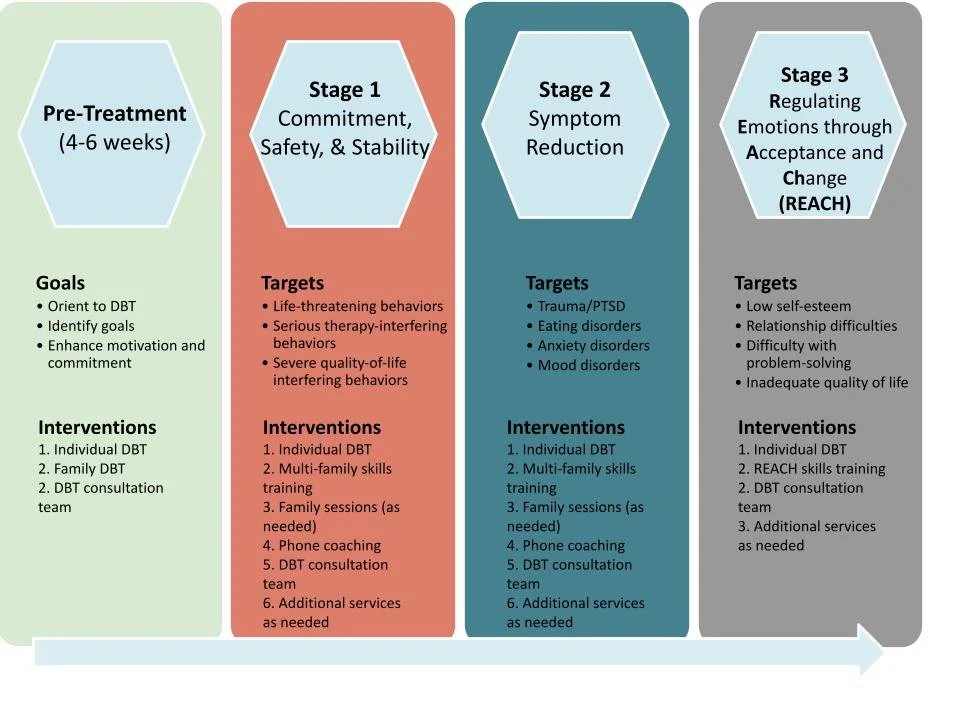
Multi-Family Dialectical Behavior Therapy (MF-DBT)
What is multi-family dialectical behavior therapy?
Comprehensive Multi-Family Dialectical Behavioral Therapy (MF-DBT) for adolescents (age 13 to 18) is an evidence-based treatment designed to help manage impulsive behaviors, emotional responses, and self-destructive urges. DBT was originally developed by Marsha Linehan, Ph.D., ABPP, as a comprehensive cognitive-behavioral treatment and has been adapted for adolescents through research by Dr. Jill Rathus and Dr. Alec Miller. DBT utilizes a dialectical approach aimed to achieve a synthesis among seemingly opposite positions, with the core dialectical dilemma in DBT being the need to utilize both acceptance and change. When applied to adolescents and families, DBT skills help manage stress and live a healthier, more meaningful life.
How does the program work?
Adolescents who may benefit from MF-DBT often present with the following:
Emotional dysregulation
Frequent mood swings
Impulsivity and/or disruptive behaviors
Non-suicidal self-injury
Suicidal ideation
Suicidal behaviors
Significant family and social relationship distress
Disordered eating behaviors
Substance use
Ineffective coping skills
What does comprehensive MF-DBT entail?
-
MF-DBT is comprised of four modes of treatment that together form the “comprehensive” model: (1) weekly individual therapy for the adolescent (2) phone coaching (3) multi-family skills group (4) MF-DBT consultation team (an essential component of DBT that does not involve client participation). Family therapy sessions, along with ancillary services (e.g. medication management and nutrition services) may also be recommended, based on symptom presentation.
-
MF-DBT occurs over the course of four stages of treatment: pre-treatment, stage 1, stage 2, and stage 3.
Upon beginning stage 1, adolescents and their parents/caregivers will join a 24-week multi-family psychoeducational skills group focused on acquisition of five critical skill sets: Mindfulness, Distress Tolerance, Emotion Regulation, Interpersonal Effectiveness, and Walking the Middle Path.
Adolescent and parent/caregiver participation is an integral component of MF-DBT, and therefore, a requirement for MF-DBT skills class. This type of treatment delivery ensures that both adolescents and their caregivers will learn and behaviorally rehearse skills together, thereby promoting increased connectedness and support in the daily application of DBT strategies.
-
Through knowledge and implementation of DBT skills, adolescents and their families are better equipped to manage crises and communicate effectively, while contending with and tolerating daily life stressors. MF-DBT also assists with problem solving difficult emotions and behaviors, and improves family functioning.


